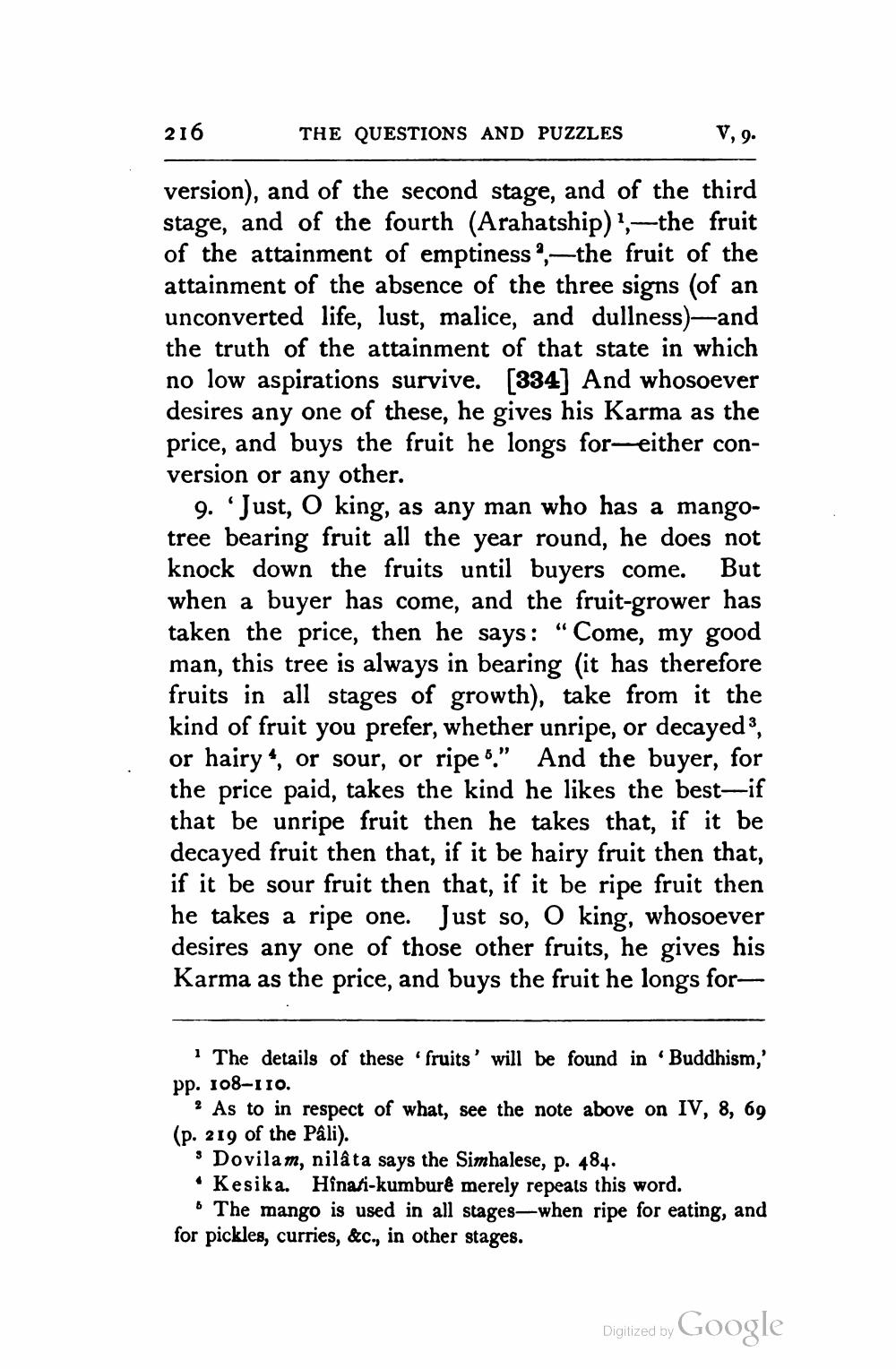________________
216
THE QUESTIONS AND PUZZLES
version), and of the second stage, and of the third stage, and of the fourth (Arahatship)',—the fruit of the attainment of emptiness',-the fruit of the attainment of the absence of the three signs (of an unconverted life, lust, malice, and dullness)—and the truth of the attainment of that state in which no low aspirations survive. [334] And whosoever desires any one of these, he gives his Karma as the price, and buys the fruit he longs for either conversion or any other.
9. Just, O king, as any man who has a mangotree bearing fruit all the year round, he does not knock down the fruits until buyers come. But when a buyer has come, and the fruit-grower has taken the price, then he says: "Come, my good man, this tree is always in bearing (it has therefore fruits in all stages of growth), take from it the kind of fruit you prefer, whether unripe, or decayed3, or hairy, or sour, or ripe." And the buyer, for the price paid, takes the kind he likes the best-if that be unripe fruit then he takes that, if it be decayed fruit then that, if it be hairy fruit then that, if it be sour fruit then that, if it be ripe fruit then he takes a ripe one. Just so, O king, whosoever desires any one of those other fruits, he gives his Karma as the price, and buys the fruit he longs for
V, 9.
The details of these 'fruits' will be found in Buddhism,' pp. 108-110.
2 As to in respect of what, see the note above on IV, 8, 69 (p. 219 of the Pâli).
Dovilam, nilâta says the Simhalese, p. 484.
Kesika. Hinati-kumburê merely repeats this word.
The mango is used in all stages-when ripe for eating, and for pickles, curries, &c., in other stages.
Digitized by
Google




